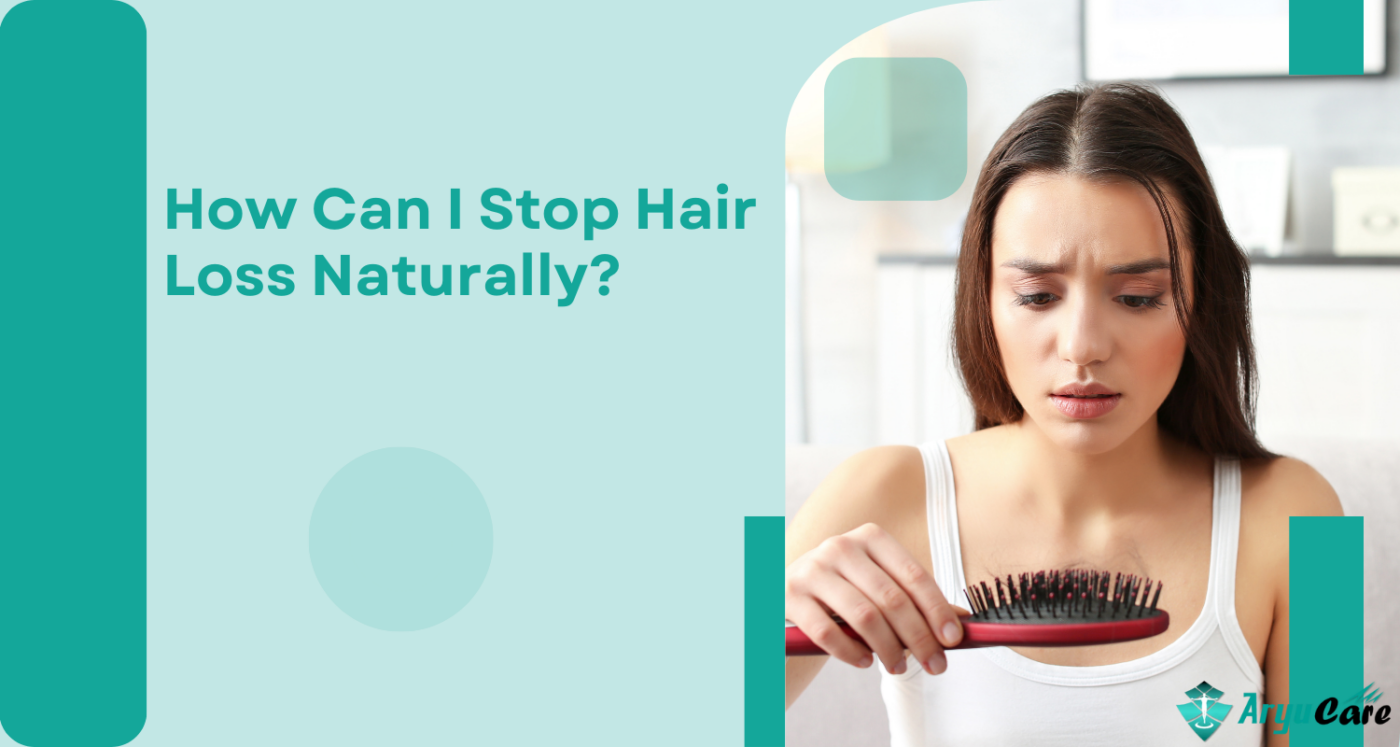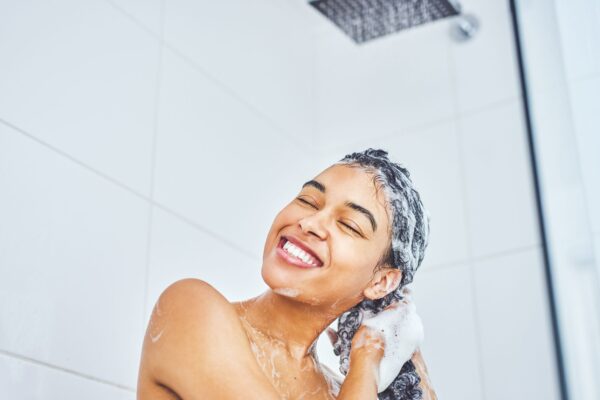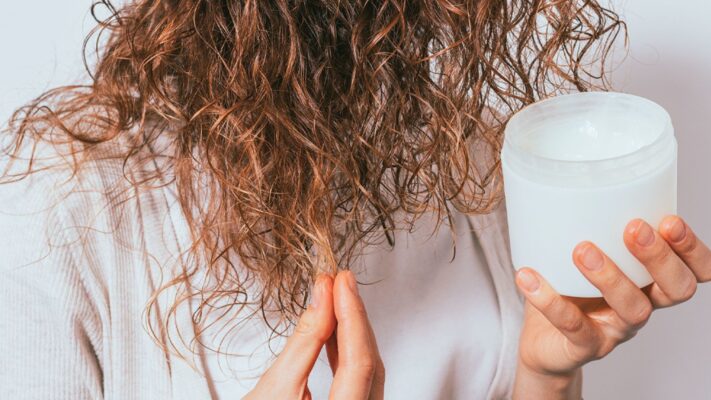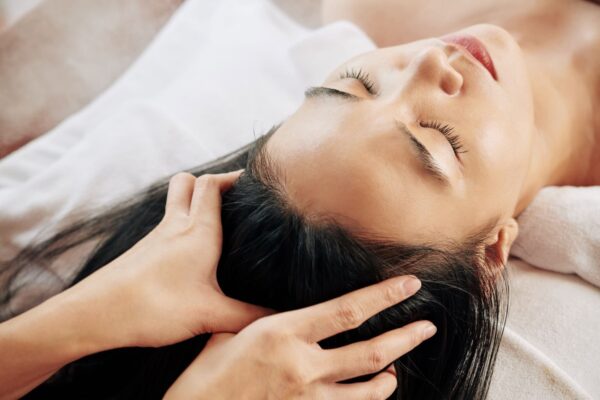Hair Loss
How Can I Stop Hair Loss Naturally?
For most of us, a good hair day makes us happy and automatically brings a smile to our faces. This is the extent of the significance attributed to the physical aspect of hair.
When even an occasional bad hair day can ruin the mood for a considerable amount of time, one can only imagine how dreadful it is to start losing hair locks.
Baldness and thinning hair have become a norm in society today, and they are evident in most individuals. While for some people, the genes are to blame, for others, it is the chemicals that are used in their hair styling and coloring products.
So, how do you manage this issue and eradicate it right from its source? Should you use medications? Or should you give natural ones a shot? If you are experiencing Hair loss or thinning hair – whether male or female – you may find this article helpful as we have gathered our most effective tips on preventing further hair loss when you are only beginning to notice it.
Cleansing And Conditioning Your Hair
First of all, many of us, particularly men, are accustomed to washing our scalps and hair with soap, which can be very damaging. Shampoos are harsh and drying, and many soaps are as well. We need to use a mild shampoo, one that will not leave our hair and scalp completely dry.
More than just shampooing the hair, a good conditioner should be used on 3/4th of the hair mass and not the scalp every time the hair is washed.
Almost all conditioners have Amino acids in their ingredients because they help replenish the hair and minimize the formation of frizz and split-end hair.
We cannot suggest how often one should wash their hair because it depends on the hair type and how usually the scalp becomes oily. However, we advise you not to wash your hair so frequently that it becomes dry and brittle, resulting in hair breakage and frizz.
Fix a Healthy Diet
A hair diet is also essential; protein and vitamins such as vitamins A and C can help hair grow with beautiful results.
It has been established that biotin and protein in your diet benefit your hair. This is a very important aspect of hair care, and it helps to enhance the quality of hair. It fosters hair growth, minimizes hair shedding, and plays a role in hair quality and resilience.
Managing Stress
Stress is a normal part of life and is often caused by pressures or dangers. However, prolonged stress can damage our bodies and minds. Stress and its proper management can be an important factor in enhancing the quality of life.
Stress activates the body’s ‘fight or flight’ response system, releasing adrenaline and cortisol hormones. Although short-term stress is helpful, long-term stress is dangerous as it results in anxiety, depression, heart disease, and a compromised immune system.
It involves endorphins, which are natural feel-good hormones. Stress can be quickly relieved through walking, jogging, swimming, or even practising yoga.
Ideally, one should engage in at least 30 minutes of moderate exercise most days of the week.
Hair Mask
Using a herbal hair mask of henna, hibiscus, and aloe vera also helps retain hair moisture, prevent damage and dandruff, and halt hair loss. Hair masks build up hair shafts and supply them with nutrients and moisture.
The best way of managing frizz is by applying cow ghee directly to your hair. Massage lukewarm cow ghee from the root of the hair to the tip of the hair strand, let it sit for 15 minutes, and then wash your hair using the best herbal shampoo.
Aloe Vera
Aloe vera is known for its calming and moisturizing effects on the skin and hair, which can help improve the condition of the scalp, decrease inflammation, and stimulate hair growth.
The calming and moisturizing effects of aloe vera on the skin and hair are known to improve the condition of the scalp, decrease inflammation, and stimulate hair growth.
Aloe vera gel can feed the scalp, regulate pH, and enhance hair texture and quality.
Aloe vera gel is safe for external use, but before applying it to your skin, it is advisable to apply a small amount and wait for a while to see if you will have a reaction. If hair loss continues, it is recommended that you see a doctor.
Rub a new portion of aloe vera gel onto the head and hair, let it sit for about 30 minutes to an hour and then wash it off with water.
Coconut Oil
Coconut oil can enhance hair health, minimize hair breakage, and prevent hair loss due to dryness or damage. Most individuals consider coconut oil safe, but if it irritates the scalp, stop using it and consult a doctor.
Apply coconut oil to the scalp and hair, warm it up, and let it sit for a few hours or overnight. Then, wash with a mild shampoo.
Amla (Indian Gooseberry)
FMCG manufacturers have utilized amla to its full potential. Perhaps no other guide on hair growth can be written without mentioning the Indian Gooseberry.
Among the most used components in Ayurvedic medicines, Amla is the best to use to solve any problem related to hair growth and health.
Amla has a property that helps improve hair follicles. It is packed with nutrients that are known to encourage hair growth and protect hair from damage. Some of the few elements that deserve mention are antioxidants and Vitamin C.
We already know that free radicals and antioxidants are at loggerheads and that Vitamin C can enhance hair follicles by eliminating the free radicals.
It also has the ability to reverse the process of Hair pigmentation and make it look younger. Mix an equal proportion of Amla juice and lime juice.
Apply this mixture to your scalp and allow it to dry for about two hours. You can then wash it with warm water to remove any remaining debris.
Curry Leaves
You will not believe it, but curry leaves are the best way to care for your hair’s health! This herb is mainly used in Indian foods and is among the best for grey hair. It also helps prevent the development of grey hair and promotes better hair growth.
You can transform it into a thin paste and apply it to your hair or ingest it – either way, it will significantly enhance your hair’s condition. Well, if you come across curry leaves in your curry- do not discard them. Instead, eat them!
Heat coconut oil and curry leaves together and let them simmer. Make sure you are not scorching the leaves. The oil will turn black and solidify when it starts boiling to form a residue.
You can apply this residue to hair to get the results. This mixture should help you combat grey hair and enhance your hair regrowth.
Supplements
Most vitamins and minerals are essential for hair growth and development. However, certain nutritional deficiencies may cause hair loss.
Taking vitamin D supplements can also be useful for decreasing the manifestations of genetic hair loss or telogen effluvium. We need to conduct more research to establish a conclusive correlation.
Taking iron supplements may be beneficial in decreasing symptoms in those with iron deficiencies. If individuals do not get enough vitamin C, they may also want to supplement with it if they have low iron levels.
It has also been discovered by Trusted Source research that low levels of vitamin D are associated with alopecia areata, a form of hair loss due to an autoimmune response. If this condition is present, vitamin D supplements are suggested for those lacking in it.
There currently isn’t adequate evidence that supplementation of the following can help with hair loss: There currently isn’t adequate evidence that supplementation of the following can help with hair loss:
- Zinc
- Riboflavin (vitamin B2)
- Folic acid (vitamin B9)
- Vitamin B12
- Biotin
- Vitamin E
A few small-scale studies suggest that excessive intake of vitamin A or selenium may cause hair loss, but researchers need to conduct more studies to confirm this. Scientists are still studying the potential benefits of taking iron or zinc for individuals with alopecia areata.
Regular Scalp Massage
Scalp massages also help increase blood flow to the hair follicles, which in turn helps supply the necessary nutrients and oxygen to the hair follicles for stronger hair.
They can also assist in lowering stress and tension, which are leading factors contributing to hair loss. Coconut or jojoba oil can also enrich the scalp and hair even further.
Just rub your fingertips over your scalp in a circular motion for several minutes daily. Including this simple routine in your hair care regime is advisable as it can significantly improve the quality of hair and the condition of the scalp.
Avoid Tight, Restrictive Hairstyles
Amazingly, your hairstyle could cause hair loss since it tugs on the hair follicles, leading to traction alopecia.
As mentioned earlier, hair loss of this type occurs when the hair follicles experience physical pulling or stress beyond their capacity. You should take into account factors such as wearing tight ponytails, man buns, braids, or cornrows.
If you have been experiencing hair loss in areas subjected to pressure due to a tight hairstyle, try to ease the pressure on your follicles by adopting less stressful hair care practices.
Seek Professional Mental Health Care
If psychological stress is a severe and chronic problem, it may be appropriate to discuss with your doctor the possibility of counselling.
Because stress affects every part of one’s mental and physical health, going to a therapist is good for the hairline and the entire body and well-being.






This is a very informative post. I would love to see a follow-up article that discusses the best natural supplements for hair loss.
Thanks for the comprehensive guide! I’d love to see a section on common mistakes people make when trying to combat hair loss naturally. That could be really helpful!